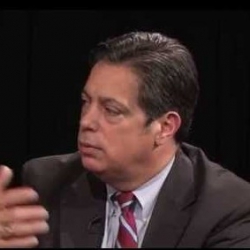Pennsylvania State Sen. Jay Costa issued a memoranda this week that he was co-sponsoring an online gambling bill. Costa’s bill would legalize online gambling, online lotteries, and daily fantasy sports.
If passed, the bill would have the highest tax rates of any online gambling bill in the United States. That is standard for Pennsylvania, which collects more tax revenues from gambling than any other US states besides Nevada.
$10 Million Online Gambling Licensing Fee
Under Jay Costa’s bill, Pennsylvania online gambling operators would have to pay a one-time $10 million licensing fee. Vendors that offer games would be required to pay a $5 million fee. Online gambling revenues would be taxed at 25% of the gross revenues.
In Pennsylvania’s brick-and-mortar casino industry, Pennsylvania is taxed at a 54% tax rate. Table games are taxed at 16%. Once again, those rates are high by general standards across the United States.
$2.5 Million Fee for Daily Fantasy Sports
Licensed daily fantasy sports gaming would face similar rates. DFS operators would need to pay a $2.5 million licensing fee, while gaming revenues would be taxed at a 25% rate.
Dustin Gouker of Legal Sports Report said those rates would be the highest in the country. Gouker said, “No state has set a DFS licensing fee anywhere near $2.5 million, let alone seven figures. The 25% tax rate would be the highest tax rate, by far, of the states that tax DFS revenue. The only ones close are New York (15.5%) and Missouri (11.5%).”
High Tax Rates
Of course, 15% and 11% are nowhere near close to a 25% rate, which immediately takes an additional 10% to 15% of the profits from the top. The one-time licensing fee is more understandable, if you consider that Pennsylvania is a much larger state than many of those licensing daily fantasy sports.
In other words, a license from Pennsylvania would be twice as valuable as one from Missouri, because Pennsylvania has a population of 12.9 million people, while Missouri has a population of 6 million. The license gives access to more than twice as many gamblers. The high tax rate, of course, throws off those calculations somewhat.
Costa’s Plan for DFS
In his memo, Sen. Jay Costa said he expects the state to collect $5 million from the DFS licensing fee. Costa implies that DraftKings and FanDuel will each pay the licensing fee, while other operators like StarsDraft and Yahoo Fantasy Sports Daily likely would not pay the fee. Since DraftKings and FanDuel agreed to merge in November 2016, it is possible Pennsylvania might receive only $2.5 million in revenues.
Operators like Yahoo Fantasy Sports Daily obviously would have the cash to pay the fee, but their playing communities are much smaller than the two giants of DFS, so it probably would not be worth the trouble for Yahoo to pay the fee.
StarsDraft (formerly Victiv) is owned by PokerStars, so it could afford the fee, too. Once again, it is unlikely to invest the cash, because its business in the DFS industry is much smaller than DraftKings or FanDuel’s business.
Lottery Tablet Gaming in Airports
Under terms of the bill, the Pennsylvania Lottery would be allowed to have lotto gambling at the Philadelphia and Pittsburgh airports. This would be in the form of “tablet gaming”, which allows online lottery sales and virtual scratch cards. The ability to buy tickets in airports would be a boon for the Pennsylvania Lottery.
Opponents of Online Gambling
The bill is likely to have opponents. Sands Bethlehem Casino and Parx Casino are hostile to the bill. Sands Bethlehem is the casino with the highest revenues in Pennsylvania and is owned by one of the biggest casino companies in the world, Las Vegas Sands.
Its founder, Sheldon Adelson, is a major Republican donor and an activist on the subject of online gambling. He seeks a 50-state ban on all forms of Internet gambling.
Past Pennsylvania iGaming Debates
Several other pushes for an online gambling bill failed in Pennsylvania. At one time, three different state-level lawmakers had plans for online poker or online poker/casino gambling. In each cases, those initiatives fell by the wayside. Sheldon Adelson’s political action committee ran ads suggesting that licensed online gambling would expose children as young as 6 to predatory gambling operators.
Proponents of online gambling legalization pointed out that Adelson’s group continues to confuse unlicensed online casinos with licensed online casinos. The idea is to take the worst case scenario from unlicensed offshore gaming and use it to scare people about regulated gaming. The irony is licensed and regulated gaming has many protections and resources baked-into the law, so an online gambling bill would help eliminate many of the horror stories the anti-gambling forces push. With alternatives, those who are going to gamble likely would flock to the legal and licensed sites.

